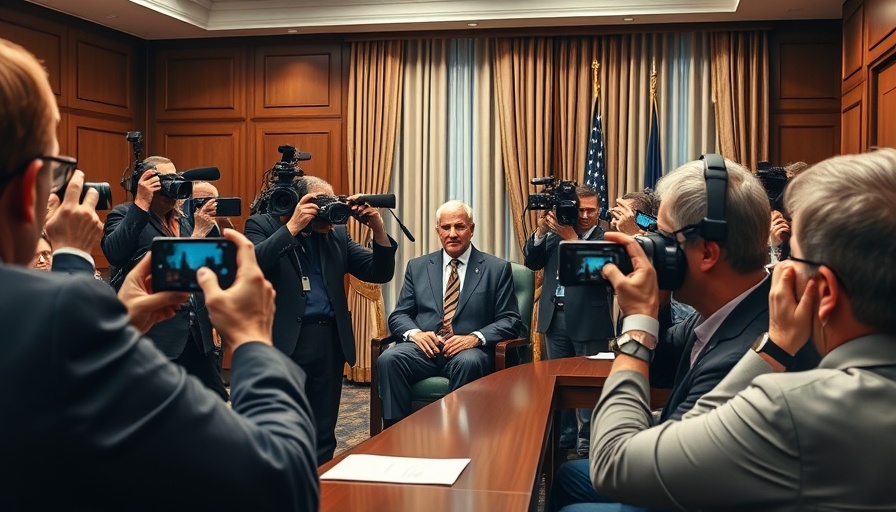
Could RFK Jr. Threaten Public Health?
In a surprising turn of events, members of Robert F. Kennedy Jr.'s family have voiced serious concerns about his leadership as the Secretary of Health and Human Services. Following a challenging congressional hearing last week, calls for Kennedy's resignation have emerged, especially from his sister Kerry and nephew Joseph.
Family Fury Fuels Calls for Resignation
Joseph P. Kennedy III described his uncle as a "threat to the health and wellbeing of every American." This statement is particularly striking given the family's historical involvement in public health matters. With his views on vaccines and public health policy being a source of contention, the family's public outcry signals a significant rift that goes beyond politics—it touches on fundamental health concerns that could affect all of us.
The Stakes of Health Policy Decisions
At the Senate hearing, Kennedy defended his controversial actions, including attempting to roll back COVID-19 vaccine recommendations and making changes within the Centers for Disease Control. His views align with the anti-vaccine movement, which has gained momentum in recent years, raising important questions about the safety and well-being of the public, notably vulnerable populations such as senior citizens.
An Open Letter from the Heart
Kerry Kennedy expressed her concerns poignantly, stating, "Medical decisions belong in the hands of trained and licensed professionals, not incompetent and misguided leadership." Her remarks resonate deeply for many, especially for older adults who are more susceptible to health issues and who rely on trusted health officials to safeguard their welfare.
The Impact of Leadership on Health
As someone specializing in health trends and lifestyle choices, I recognize how vital it is that those in positions of power prioritize evidence-based strategies for public health. The potential ramifications of Kennedy's policies are profound, especially in a rapidly evolving health landscape shaped by the pandemic. A leader's decisions ripple through communities, especially affecting those who may feel locked into their circumstances, lacking the resources or mobility to freely choose their health paths.
A Look at the Opposition
Interestingly, Kennedy's family isn’t the only group concerned. Many public health officials and organizations have expressed alarm over his actions. These groups fear that reversing vaccine recommendations could undermine public trust in health systems—a legacy that could last well beyond one administration. It’s crucial to consider the impact of leadership on health policy and how it affects vulnerable groups in society.
Historical Context: The Anti-Vaccine Struggle
Historically, anti-vaccine sentiments trace back to a complex web of distrust in government and medicine. Kennedy's position, once considered niche, now holds sway at the highest levels of federal health policy, highlighting a shift that many health experts find troubling. With the historical context in mind, it’s essential for citizens to remain aware of the evolving dialogue surrounding vaccines and health safety.
Moving Forward: Seeking Common Ground
As we navigate this contentious landscape, it is crucial for families, especially older generations, to engage in dialogues about health decisions. Seeking common ground—where research-based guidelines meet public opinion—can ensure that health policies serve everyone’s best interests.
As Kennedy continues his leadership role, let’s remain informed, cautious, and proactive. Understanding the implications of these decisions on health, especially for older adults, is vital for safeguarding our future.
Stay informed, Louisiana seniors! Coordination with your healthcare provider is your best strategy to navigate this complex health landscape.
 Add Row
Add Row  Add
Add 



Write A Comment